
Özge Nur Öğütcü
Spacialist, AVİM
15.10.2014
RUSSIA AND THE WEST: ASSESMENT OF THE CURRENT DEVELOPMENTS
Between the dates 4-5 September 2014 members of North Atlantic Treaty Organization (NATO) came together in Wales, in order to discuss current developments particularly crisis in Ukraine, post-2015 in Afghanistan aftermath the withdrawal of ISAF Mission, tackling new threats, partnerships. Additionally NATO came up with a new term called “Readiness Action Plan” which contains improving capabilities via making forces “faster, fitter, more flexible: ready to address any challenges whenever wherever they come” as Rasmussen, the Secretary General (SecGen) of NATO, stated during his doorstep speech on the first day of NATO Summit. Timing of the Summit is very crucial considering the fact that both on the Southern and Eastern borders of NATO there have been conflicts and challenges to tackle. On the Southern borders there is a new emerging threat called ISIS and on the Eastern borders NATO again faces Russia and her aggression towards Ukraine, particularly and increasing influence over former-Soviet Union countries. As we see, future SecGen of NATO – former Norwegian Prime Minister Jens Stoltenberg – took over a busy agenda from Rasmussen in October, 2014.
Ukraine is one of the most important topics on the agenda of the international community since Ukraine stands on a very sensitive situation in terms of geo-political importance, pipeline routes and transportation of Russian gas to the European markets and the mixed societal structures, it is a challenging process to find an inclusive common ground to end the conflicts in the country. But considering the fact that in Caucasus, Balkans and Eastern Europe there are many places like Ukraine with the same sensitive dimensions – such as Moldova and frozen conflicts in the South Caucasus – therefore, might face the very same problem in the mid or long term future.
The countries that EU and NATO engage through partnership programs are trying to stand in balance between West and the East. A very clear and recent example; Armenia made her choice and declared that she decided to join Customs Union and signed the agreements on 1st of October so became a full member now. With this choice Armenia, which is a member of Collective Security Treaty Organization since 2002 (An inter-governmental security organization led by Russia), merged her economic system into another initiative lead by Russia. Also Armenia is the only country that hosts a Russian military base, in Gymri and recently signed an agreement stating that Russian troops will remain until 2044. Georgia, a pro-Western country in the South Caucasus already experienced a war in 2008, therefore standing on a sensitive point and decided to proceed with Association Agreements offered by EU. Azerbaijan, not a fan of Customs Union, is trying to create a balance between West and Russia while trying to tackle the Nagorno-Karabakh issue which effects the regional economic and security concerns as well as stability. Russia, with a wide impact over Caucasus and Eastern Europe seems like determined to have closer relations with both regions with long term, yet unclear, commitments.
West, being aware of Russia’s strategies and risks, is trying to reach a common ground. Right before the NATO Summit leader of Russia, Ukraine, Belarus and EU came together in Minsk to discuss the next steps to provide peace and stability in Eastern Europe as soon as possible. But the results were rather complicated than bringing a real working plan on the table. Neither West nor Russia stepped back and compromised, which led to hot debates at NATO Summit and Belarus[1], where the representatives from Ukraine, Russia, the pro-Russian rebels and the Organization for Security and Cooperation came together to discuss the conditions of a possible ceasefire. While West keeps warning Russia over her invasion – illegal – of Ukraine, Russia insisting on the fact that people living in the Eastern part of the Ukraine have any right to claim self-determination and trying to make clear of her disturbance over a “unipolar” system in the world. At the first day of the NATO Summit leaders stated their strong stand together with Ukraine and SecGen. Rasmussen made this common stand clear during his speeches. Cameron said that: "I hope that today we can agree a multinational spearhead force deployable anywhere in the world in just two to five days."[2]
Meanwhile, as a reaction coming from Western Community the military units in Szczecin, Poland had been decided to be increased as a preventive measure against any threat coming from Russia towards Baltic States. There are already 208 soldiers in Szczecin. But this number will be sized up to 3 to 5 thousands with the mergence with NATO’s rapid deployable forces.[3] Even though it contradicts with the NATO’s Founding Act 1997 signed in Paris to develop cooperation and security between NATO and Russia. However Merkel also stated that she does not want to “overstep” this agreement,[4] this has been seen as an important step towards reassuring Eastern Partners that NATO will stand by their side in case of urgent crisis. Poland, with a similar perception, already brought this request on the table in April, 2014. But now a further step has been taken and they are asking to permanent bases in their territories.[5] Additionally, Romania also would like to have base fighter planes and personnel of NATO within her territories.[6] Eventhough Petro Poroshenko declared that a ceasefire agreement has been signed and came into force between Ukraine and Pro-Russian separatists on Friday; it will take more efforts and time to overcome the perceptions of the Eastern European countries, seeing Russia as a threat particularly over former-Soviet Union territories.
Partnership was among the NATO’s Summit Agenda items. To tackle the global and unconventional threats NATO foresees deeper, stronger and improved partnership policies. Together with the new term Readiness Action Plan, NATO will be able to actively and faster react in the case of crisis. Rasmussen saw both pillars as supplementary to each other and said: “So with the Readiness Action Plan, improved capability and our unique set of partners, NATO is able to act swiftly, decisively and in concert with others,” with a particular attention and extension to three countries with a special request coming from them: Georgia, Jordan and Moldova within “Defence Capacity Building Initiative” which aims to strengthen cooperation with partner countries and develop their military capacities.[7][8] This Initiative contains a new item: Cyber Security. It has been on NATO’s agenda earlier, but especially aftermath Georgia and Estonia experiences, NATO decided to take concrete steps via putting it on the agenda of the NATO Summit and mention it among one of the 16 priorities of NATO.[9] There is a clear preventive action plan preparation against any possible threats coming from where ever and whenever. NATO, having direct borders with Russia and Middle East, has to be able to act fast to reassure its Alliances and partners that they won’t be have to tackle the threats alone and NATO is an organization established and still stands on common interests. An active role given to OSCE at the Minsk Summit and participation of the representatives from all parties will help to reach stability and peace in the region.
Meanwhile, another “Western” institution concerned over Russia’s actions, European Union declared its new program with the new term under Jean-Claude Juncker.[10] A new committee named “European Neighborhood Policy and Enlargement Negotiations” has been established and in here “negotiations” is a new term. Junker also declared that there will be no EU enlargement in the upcoming 5-year-term. EU has shown that it is going to focus on internal affairs and deeper cooperation among the members[11] and non-EU countries in the upcoming term. Yet, prospective membership will have to wait for awhile. This is a strong message to partners, if they do not have any membership expectations in the future for the neighbor countries that are looking for a “carrot” this might have a discouraging effect eventhough the process continues, since membership will not be on the table openly for a while. Enlargement constitutes a risk under the current circumstances.[12] On the other hand, EU shows that it is taking international cooperation more seriously and will improve its position in the international community. Even though it will be hard to find a common ground among EU member states, since countries are not very keen on “limiting” their covereignities when it comes to security issues, with the establishment of European External Action Servies in 2010, an important step has been taken towards integrating foreign policies of the member countries. Enlargement constitutes a risk under the current circumstances.
On the other hand, Russia offers alternatives to EU’s Eastern Partners – the example would be Eurasian Customs Union - and she is also engaging with the new markets especially in the East via signing cooperation agreements with China[13] and Iran[14] on economic and energy areas. This new foreign policy trend of Russia will create more challenges for the West. Moreover considering EU’s efforts to decrease its energy dependency over Russia, by creating internal energy markets, decrease carbon emissions, focusing on renewable energy resources[15] and banning exports of energy as a short term measure, close relations between Russia-China and Russia Iran might restrict EU’s and West’s rooms to look for alternative oil and natural gas resources.
Both EU and NATO – and countries on a bilateral level – are trying to overcome the current crisis and prevent and possible “spillover effect” by taking economic, social, political and military actions and preventions – via implementing sanctions. On the other hand Russia is looking for new markets to build or deepen its relations with. While EU is preparing new lists of sanctions against Russia, exact positions of the members are still not very clear. In terms of energy particularly, all parties are still seeking a way to reach a deal. Global agenda is very musy with new emerging problems around the world which requires all parties to cooperate and work together. The crisis between West and Russia might have an impact over a lot of areas and regions. For instance: Balkan and Eastern European countries will face electricity and natural gas problems this winter, risks will increase even more for investors and pipeline projects are being kept on hold. Moreover, Russia holds an important role in the Nuclear Talks process with Iran. Additionaly, according to news published on ITAR-TASS on 1st of October, Russian Foreign Minister Lavrov recently stated that “The negotiations have confirmed that the resumption of the six-party talks is possible, but this will require some time” while commenting on the process of suspended talks with North-Korea.
As a conclusion, concerning from the developments and current agenda although there is a mistrust between Russia and “West”, negotiations and talks should continue rapidly. In order to provide a long-term stability and be able to focus on other threats – unconventional mainly – all parties should take political, social and economic dimensions of the conflicts into account when they bring the crisis on the table.
________________________________________
[1] “Talks on Ukraine cease-fire start in Belarus”, Today’s Zaman, 05 Sep. 2014, http://www.todayszaman.com/world_talks-on-ukraine-cease-fire-start-in-belarus_357807.html
[2] “Nato to announce 4,000-strong rapid reaction force to counter Russian threat”, Ewen MacAskill, The Guardian, 05.09.2014, http://www.theguardian.com/world/2014/sep/05/nato-4000-rapid-reaction-force-baltics-russia?CMP=twt_gu
[3] “Almanya, Polonya'ya asker yolluyor”, DW, 05 Sep. 2014, http://www.dw.de/almanya-polonyaya-asker-yolluyor/a-17903399?utm_medium=twitter&maca=tur-twitter_tur_all-10083-xml-mrss&utm_source=twitterfeed
[4] “Eastern hopes for NATO bases stymied by Russia”, 04 Sep. 2014, http://news.yahoo.com/eastern-hopes-nato-bases-stymied-russia-065646841.html
[5] ibid
[6] ibid
[7] “NATO leaders take decisions to ensure robust Alliance”, 05 Sep. 2014, www.nato.int
[8] “We will launch a Defence Capacity-Building initiative [to] allow us to help other nations build up effective defense structures and forces of their own.” Rasmussen answered a question coming from one of the audiences at a press conference, “NATO Secretary General Rasmussen: The West’s Insurance Premium for Security ‘Just Went Up”, 7 Jul. 2014, http://www.atlanticcouncil.org/en/events/past-events/nato-secretary-general-rasmussen-the-west-s-insurance-premium-for-security-just-went-up
[9] “NATO Set to Ratify Pledge on Joint Defense in Case of Major Cyberattack”, By DAVID E. SANGER, NY Times, 31 Aug. 2014, http://www.nytimes.com/2014/09/01/world/europe/nato-set-to-ratify-pledge-on-joint-defense-in-case-of-major-cyberattack.html?_r=0
[10] “Juncker'in Komisyon ekibi şekilleniyor: 'Genişleme' dosyası kaldırılabilir”, EurActiv, 04 Sep. 2014, http://www.euractiv.com.tr/abnin-gelecegi/article/junckerin-komisyon-ekibi-sekilleniyor-genisleme-dosyasi-ortadan-kalkabilir-030208#.VAlwLi1M_6A.twitter
[12] Economic crisis, lack of energy resources, current border issues and crisis in the EU’s neighbors and so on.
[13] China and Russia are expected to cooperate on energy sector more in the future: “Russia-China energy deal: Geopolitical tectonic shift”,
http://www.aljazeera.com/indepth/opinion/2014/06/russia-china-energy-alliance-ge-201461765254926525.html
[14] Russia will build 2 Nuclear power plants in Iran:
[15] Europe “20-20-20” Action Plan
© 2009-2025 Center for Eurasian Studies (AVİM) All Rights Reserved
No comments yet.
-
IRAN AND CHINA: EASTERN BLOC ON THE RISE
Özge Nur ÖĞÜTCÜ 28.01.2016 -
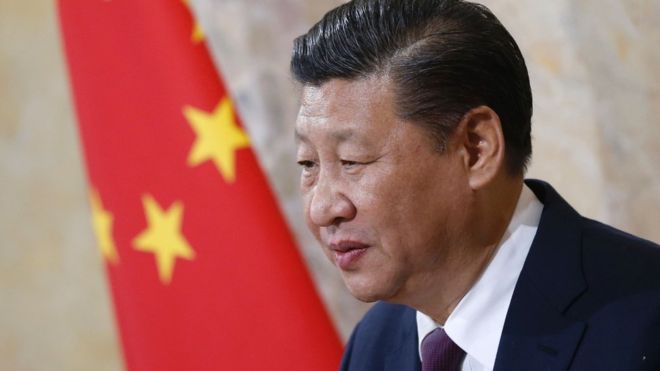 CHINA: THE EMERGING GLOBAL LEADER
CHINA: THE EMERGING GLOBAL LEADER
Özge Nur ÖĞÜTCÜ 02.02.2017 -
IRAN SEEKING NEW MARKETS IN THE SOUTH CAUCASUS: GEORGIA
Özge Nur ÖĞÜTCÜ 25.02.2016 -
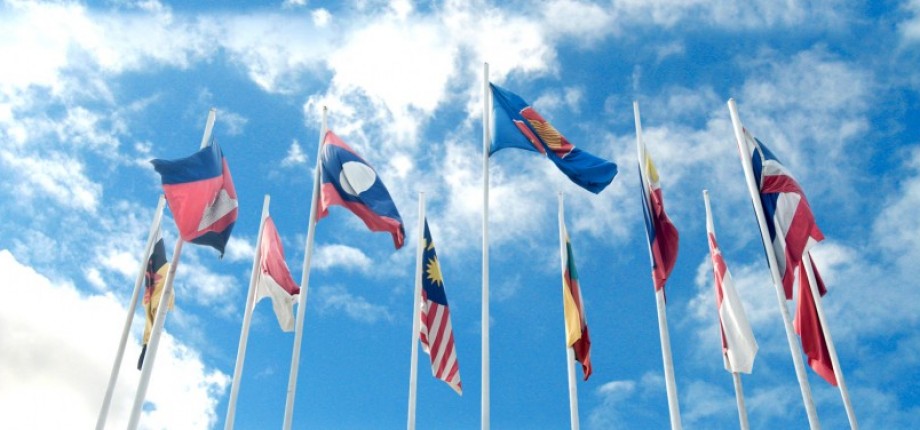 ASEAN SUMMIT AND SOUTH CHINA SEA
ASEAN SUMMIT AND SOUTH CHINA SEA
Özge Nur ÖĞÜTCÜ 12.10.2016 -
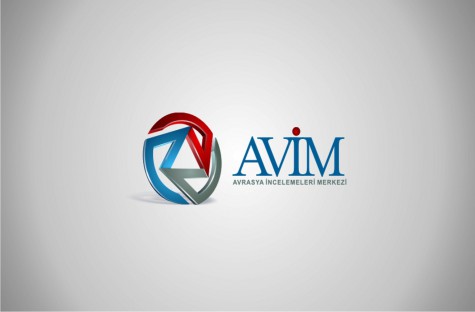 Center for Eurasian Studies and Konrad Adenauer organized
Center for Eurasian Studies and Konrad Adenauer organized
Özge Nur ÖĞÜTCÜ 08.12.2014
-
 IS THE DOMINANT ROLE OF THE DOLLAR IN GLOBAL FINANCE CHANGING?
IS THE DOMINANT ROLE OF THE DOLLAR IN GLOBAL FINANCE CHANGING?
Şevval Beste GÖKÇELİK 26.05.2022 -
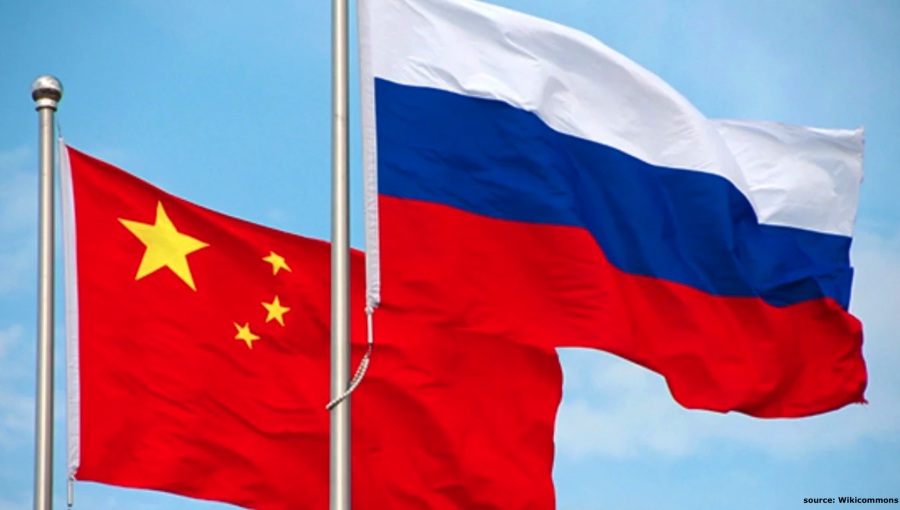 HOW HAVE THE SANCTIONS IMPOSED ON RUSSIA AFFECTED CHINA?
HOW HAVE THE SANCTIONS IMPOSED ON RUSSIA AFFECTED CHINA?
Gülperi GÜNGÖR 01.07.2022 -
ARMENIA’S NUCLEAR POWER PLANT ON THE TURKISH BORDER
Alev KILIÇ 22.10.2012 -
ARMENIA 2013 (3)
Alev KILIÇ 09.01.2013 -
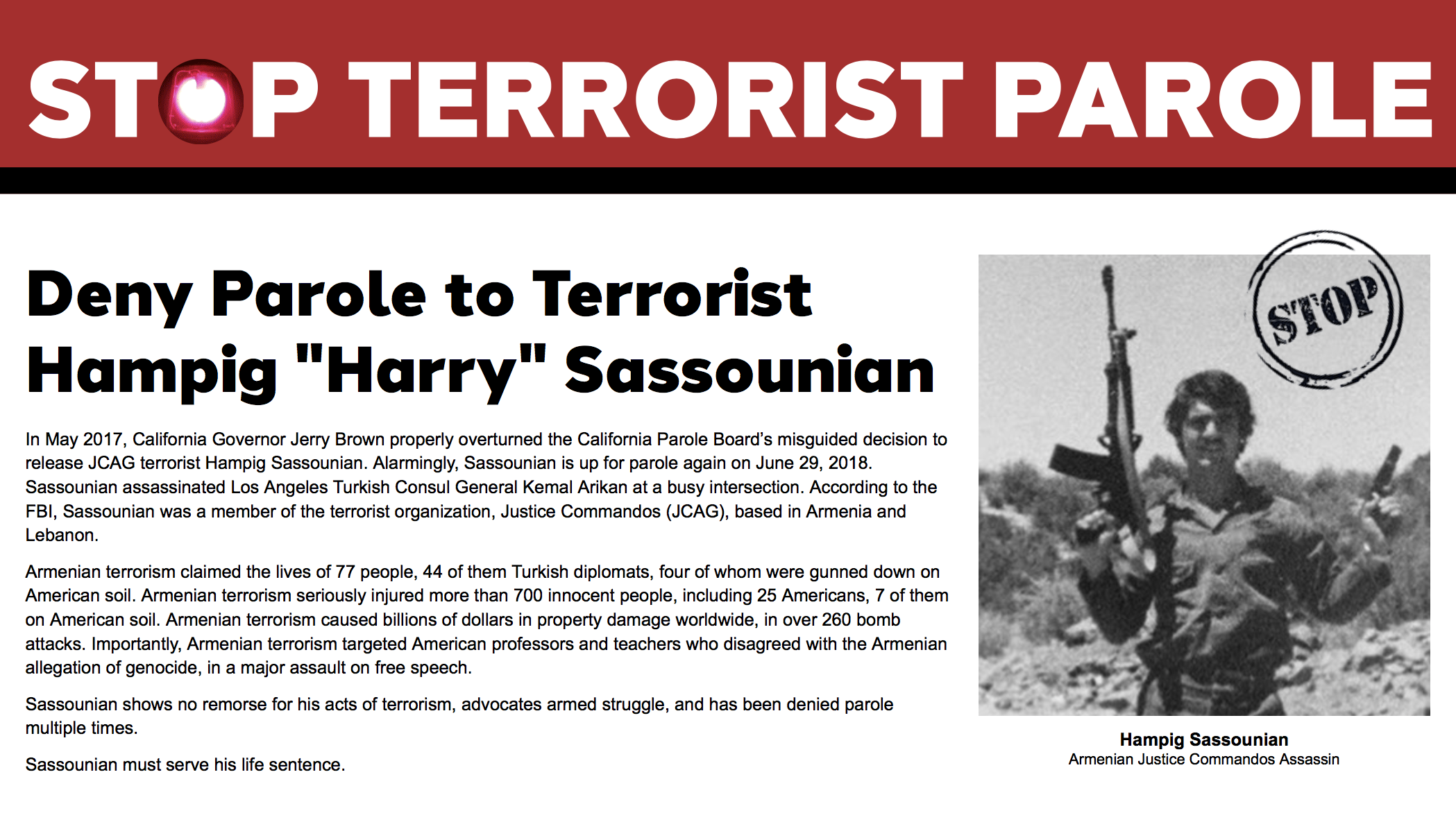 SASSOUNIAN PAROLE IS AGAIN ON THE AGENDA
SASSOUNIAN PAROLE IS AGAIN ON THE AGENDA
Hazel ÇAĞAN ELBİR 29.05.2018
-
25.01.2016
THE ARMENIAN QUESTION - BASIC KNOWLEDGE AND DOCUMENTATION -
12.06.2024
THE TRUTH WILL OUT -
27.03.2023
RADİKAL ERMENİ UNSURLARCA GERÇEKLEŞTİRİLEN MEZALİMLER VE VANDALİZM -
17.03.2023
PATRIOTISM PERVERTED -
23.02.2023
MEN ARE LIKE THAT -
03.02.2023
BAKÜ-TİFLİS-CEYHAN BORU HATTININ YAŞANAN TARİHİ -
16.12.2022
INTERNATIONAL SCHOLARS ON THE EVENTS OF 1915 -
07.12.2022
FAKE PHOTOS AND THE ARMENIAN PROPAGANDA -
07.12.2022
ERMENİ PROPAGANDASI VE SAHTE RESİMLER -
01.01.2022
A Letter From Japan - Strategically Mum: The Silence of the Armenians -
01.01.2022
Japonya'dan Bir Mektup - Stratejik Suskunluk: Ermenilerin Sessizliği -
03.06.2020
Anastas Mikoyan: Confessions of an Armenian Bolshevik -
08.04.2020
Sovyet Sonrası Ukrayna’da Devlet, Toplum ve Siyaset - Değişen Dinamikler, Dönüşen Kimlikler -
12.06.2018
Ermeni Sorunuyla İlgili İngiliz Belgeleri (1912-1923) - British Documents on Armenian Question (1912-1923) -
02.12.2016
Turkish-Russian Academics: A Historical Study on the Caucasus -
01.07.2016
Gürcistan'daki Müslüman Topluluklar: Azınlık Hakları, Kimlik, Siyaset -
10.03.2016
Armenian Diaspora: Diaspora, State and the Imagination of the Republic of Armenia -
24.01.2016
ERMENİ SORUNU - TEMEL BİLGİ VE BELGELER (2. BASKI)
-
AVİM Conference Hall 24.01.2023
CONFERENCE TITLED “HUNGARY’S PERSPECTIVES ON THE TURKIC WORLD"









